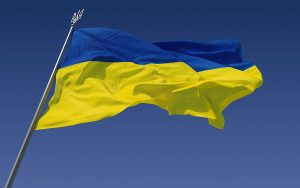As we have approached the anniversary of the Ukraine war, it seems appropriate to reflect on the ongoing impacts of this conflict on the people of Ukraine and the answers to some common questions asked about the war. Mr Russell has kindly compiled answers to my questions about the conflict in Ukraine.
Why and how did the conflict start?
The reasons for the conflict very much rest with Vladimir Putin and his view of what he believes Russia should historically be. As he was raised within the Soviet Union to his mind, he very much sees the Ukraine as something that historically belongs to Russia rather than a sovereign nation – that is therefore his justification for the illegal invasion that started in February 2022.
Could it have been prevented?
It is the confidence that Putin gained from the Russian annexation of the Crimea in 2014 when Russian forces invaded and took control of the Crimea. The response from the international community was relatively weak, with economic sanctions having a limited impact on Russia. This in many ways emboldened Putin – and is perhaps the main reason he felt confident enough to invade Ukraine, believing there would be limited response from the international community. The biggest deterrent would therefore have been a firmer foreign policy from the Western World over the last decade.
What have been the most significant global impact from the war?
The global impacts of the war can be seen in two halves. Firstly, on a social and environmental level it is clear that the war has had a direct consequence on the energy and cost of living crisis many countries are going through. As a result of the conflict wheat from the Ukraine and oil and natural gas from Russia are now unavailable to many countries. The second impact has been geo-political with the response of the international community; the strengthening of NATO, Germany taking a more active role in foreign policy and the support in the form of weapons and aid from across the world has shown that there has been support in the face of Russia’s invasion. This may have future long-term consequences for example making China consider their aggressive approach to relations with Taiwan.
How has the war impacted the civilians caught up in the conflict?
The impact of civilians in the Ukraine is by far the most tragic element of the war – it is crucial amidst concerns about energy prices in the UK or global foreign policy – that the real victims in the conflict are Ukrainian civilians. Crucial too is our clear understanding that by civilians we mean individuals who have been caught up in a conflict they have no control over. Current estimates suggest around 8,000 civilians have been killed during the conflict. This however does not account for long-term damages as hundreds of thousands more have been displaced from their homes, forced to move internally within the country, or have been impacted by the war in some way.
Is there any clear any indication to an end with this war?
Sadly, it seems realistically the only individual who could end the war immediately is Vladimir Putin, something it would appear he is unlikely to do. The signs suggest that the conflict will be a long-drawn-out process, with Russia’s refusal to give-up and with Ukraine continuing to fight for its rights. A more challenging question is how long will the Western world continue to support Ukrainian forces and what point does some form of negotiated peace become possible or acceptable to all sides?

